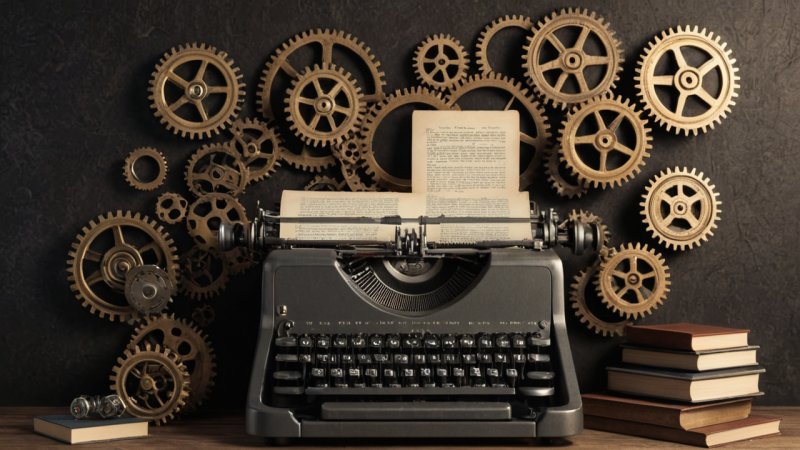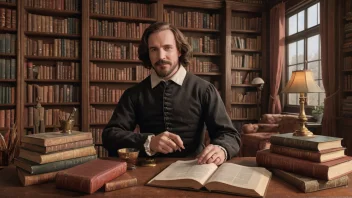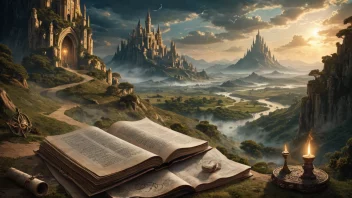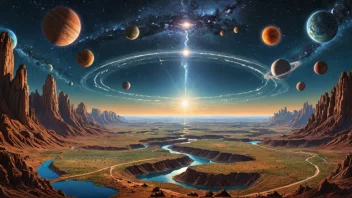Classic literature often serves as a mirror reflecting the societal values, concerns, and aspirations of its time. Among the myriad themes explored in these timeless works, the interaction between humanity and technology stands out as particularly significant. From Mary Shelley’s cautionary tale of creation in "Frankenstein" to Aldous Huxley’s dystopian vision in "Brave New World," classic literature provides a unique lens through which we can examine the complexities and consequences of technological advancements. This article delves into how various classic texts engage with themes of technology, revealing both the excitement and trepidation that accompany progress.
The Birth of Modern Technology in Literature
The Industrial Revolution marked a pivotal moment in human history, fundamentally altering the landscape of society, work, and daily life. Classic literature from this era often reflects the uncertainty and transformative nature of these advancements. Charles Dickens, for instance, in novels like "Hard Times," critiques the dehumanizing effects of industrialization, illustrating how technology can overshadow human values and relationships. Dickens paints a vivid picture of a world where machines dominate, leading to a loss of individuality and emotional connection.
Mary Shelley’s Cautionary Tale
In Mary Shelley’s "Frankenstein," the theme of creation and its consequences is explored through the lens of early scientific experimentation. Victor Frankenstein’s quest to conquer death through technology raises profound ethical questions about responsibility and the nature of humanity. Shelley’s narrative warns of the potential dangers inherent in unbridled ambition and the quest for knowledge. The creature, a product of technological advancement, becomes a poignant symbol of alienation and the unintended repercussions of scientific progress.
Reflection of Societal Fears and Aspirations
As technology advanced, so did the anxieties surrounding its impact on society. Classic literature often encapsulates these fears, providing insight into the collective consciousness of the time. In H.G. Wells’ "The Time Machine," the author explores the concept of time travel as a metaphor for societal evolution, reflecting both hope for a better future and fear of regression. The novel critiques the class divide exacerbated by technological progress, showcasing how advancements can lead to both enlightenment and oppression.
Aldous Huxley and the Dystopian Future
Aldous Huxley’s "Brave New World" serves as a stark warning against the unchecked advancement of technology. Set in a dystopian society where human beings are engineered and conditioned for conformity, Huxley critiques the commodification of life and the loss of individuality. The novel presents a chilling vision of a future where technology serves not to liberate but to control. Huxley’s exploration of artificial happiness raises critical questions about the moral implications of sacrificing individuality for societal stability.
Technology as a Double-Edged Sword
Classic literature often portrays technology as a double-edged sword, capable of both enriching and endangering human existence. This theme resonates profoundly in works such as "1984" by George Orwell. Orwell’s depiction of a totalitarian regime utilizing advanced surveillance technology to monitor citizens underscores the potential for abuse of power inherent in technological advancements. The novel serves as a cautionary tale about the fragility of freedom in the face of oppressive technological control, compelling readers to reflect on the implications of surveillance and privacy in their own lives.
Exploring the Human Condition
Beyond the societal critique, classic literature also uses technology to delve into the intricacies of the human condition. In works like "The Metamorphosis" by Franz Kafka, the transformation of Gregor Samsa into a monstrous insect can be interpreted as a metaphor for the alienation experienced in modern society, exacerbated by industrialization and technological progress. Kafka’s narrative examines the psychological toll of transformation, drawing attention to the existential questions raised by an increasingly mechanized world.
The Continued Relevance of Classic Literature
Despite being written centuries ago, classic literature continues to resonate with contemporary readers, particularly as we navigate the rapidly evolving technological landscape. The themes explored in these works serve as timeless reflections on the complexities of human existence and the ethical dilemmas posed by innovation. In an age where technology permeates every aspect of life, the insights offered by classic literature remain crucial in fostering critical discussions about the impact of technology on society and the individual.
Encouraging Critical Reflection
Engaging with classic literature encourages readers to reflect critically on the implications of technological advancements. As we stand on the brink of new innovations, from artificial intelligence to biotechnology, the lessons embedded in these literary works serve as reminders of the importance of ethical considerations and the need for a balanced approach to progress. Classic literature invites us to grapple with the questions that arise as we forge ahead into an uncertain future, reminding us that every technological advancement carries with it a legacy of choices and consequences.
Conclusion
Classic literature offers a rich tapestry of themes surrounding technology and its impact on humanity. Through the narratives of visionary authors, we gain insight into the hopes, fears, and ethical dilemmas posed by technological advancements. As we continue to navigate the complexities of modern life, the reflections found in these timeless works serve as invaluable guides, urging us to consider the profound implications of our choices. By exploring the interplay between classic literature and technology, we not only appreciate the artistry of these works but also engage in essential conversations about the future we wish to create.






